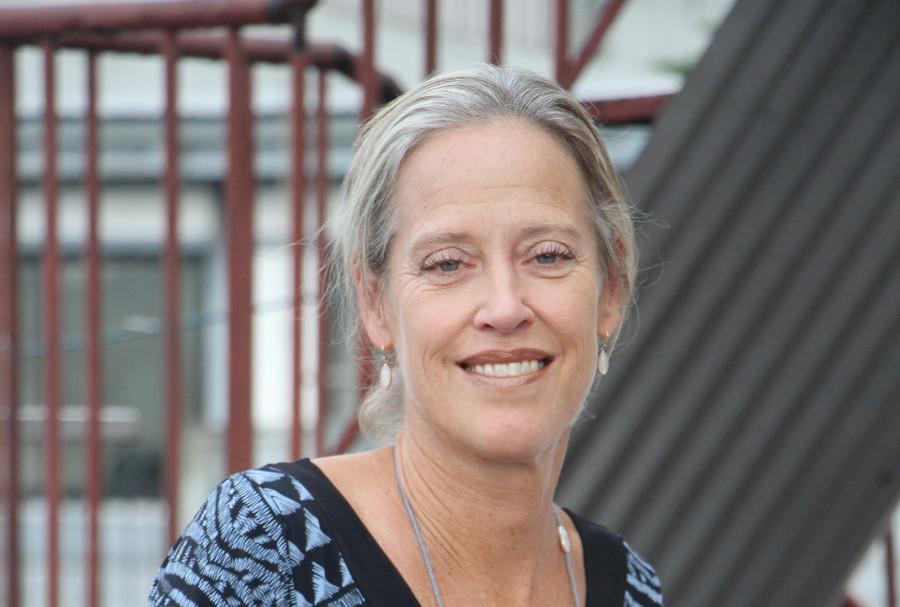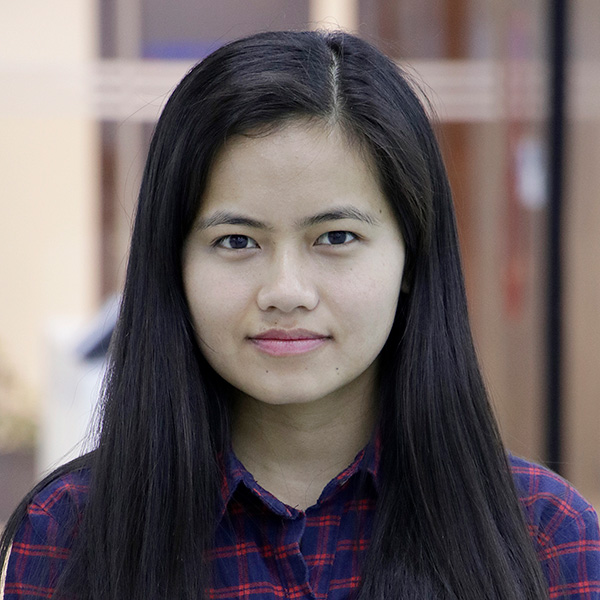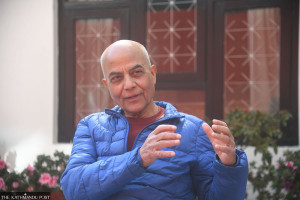Interviews
We focus on people and on cultivating local leadership: Wendy Kopp
Foreign aid rarely goes into cultivating local leadership, says the former CEO of Teach for America.
Sachitra Gurung
Wendy Kopp is the name behind the revolutionary Teach for America, a non-profit organisation that recruits qualified graduates to teach in marginalised communities of the US. After serving as the CEO of Teach for America for the past 30 years, Kopp left the organisation to be completely involved with Teach for All, a global network of organisations that work independently to improve the education sector in their own countries.
The Post’s Sachitra Gurung met with Kopp to talk about the organisation's current works, how important a role teaching plays in cultivating leadership and what it takes to be a good leader. Excerpts:
What distinguishes Teach for All from other non-profit organisations working to improve the education sector?
What unites all the organisations in the Teach for All network is their collective desire to develop leadership in young people so that they all fulfil their potential. While many other organisations focus on things like changing the curriculum or building schools, we focus on people and make an effort to cultivate local leadership by actively seeking people who have leadership potential, supporting them to teach in low-income communities and then investing in their leadership development. Teachers stay with us for two years, and even in that time frame, they should still be able to contribute to developing communities and really ensuring opportunity for all children.
What role has Teach for All played in minimising the gap between skilled teachers/leaders and needy children and schools worldwide?
Teach for All is supporting the development of Teach for Nepal and 49 other networks in the organisation, which are all collectively recruiting and developing outstanding teachers for kids in under-resourced communities. There are now thousands of people around the world who finish the two-year commitment but don't really leave the work. About 75 percent of Teach for All alumni all around the world are still working in the education sector in one way or another. Some are starting social enterprises or working in improving healthcare in low-income communities.
They are all essentially exerting the leadership necessary to actually affect the broader system changes we need.
Since all the organisations under TFA work independently, do visions clash?
Teach for All is a network of independent organisations. It’s all about learning from each other, accessing global resources, and helping build capacity of the 50 organisations.
The common set of unifying principles, purposes, vision and values is what brought us together. We came together around a vision of communities in every part of the world to give all children academic support and opportunity so that they can shape a better future for themselves and for all of us. But then every country is different so how people live those common principles is contextualised and localised. For kids in Nepal's villages to be gaining the education support and opportunity to shape a better future for themselves means having access to meaningful jobs. And TFN is figuring out what they need to work on so that the kids can navigate the change in the economy and solve complex problems in their communities and country. So how it’s done will be different in Nepal’s villages than in India or London.
What challenges did you face while working as a social entrepreneur?
I think in the life of any social entrepreneur, one of the biggest challenges is finding the resources to do the work. That has been a constant challenge for 30 years. All foreign aid is going into things like building schools or buying equipment, rarely does it go into developing local leadership. Whenever there is progress in the local community, 100 percent of the time it’s because of local leadership. That’s where our money should go but that’s not how it works.
What is the most rewarding part of your work?
For me, it’s seeing the long-term impact of the work. I can now see it in my own country, the impact in communities where Teach for America has been placing a steady stream of qualified teachers for 30 years now. We’ve seen huge increases in graduation numbers of low-income communities kids. Also, many of the Teach for America alumni are working in different levels of the school system, running NGOs or working as policymakers. When you have that much leadership working at every level of the system it really adds up to make a big difference. Now that I am seeing the same effect all over the world. Seeing all of that is what keeps me going.
Teach for All was established more than a decade ago, has the vision evolved or changed in any way?
When we came together as a network three years ago to articulate a unifying vision there was such a good push from the organisations saying that they are trying to provide children with an excellent education but to what end. But because we were trying to develop a 25-year vision, we had to think about where the world will be in that time and how much the economy is will change, all the environmental challenges, all the societal challenges. That's when we realised how crucial it is that all the students in the classrooms are gaining not only the academic skills and knowledge but problem-solving abilities, a sense of agency, an awareness necessary to actually lead and shape a better future for themselves and also for their communities and country. We have oriented ourselves towards a broader sense of outcomes for kids than what we were initially focused on.
However, the people that you recruit stay only for two years. Does that affect maintaining stability and consistency in underprivileged schools?
Let me give you an example, TFN partners with various schools, and every two years they send fellows to teach there. It's true that a fellow leaves the school after two years but there are always other equally qualified fellows to replace them. Also, the fellows become an inspiration to the teachers and community so even when they leave, they leave behind a lot of capacity and inspiration that might not have been there otherwise.
What do you think is the most important quality to become a teacher?
I think that you need to have a deep belief in the potential of children and a real commitment to go beyond traditional expectations to meet the child’s extra needs and push them forward. People who have that commitment and belief and leadership skills can make a huge difference.
In a country like Nepal, undergraduates usually prefer working in the same field that they have studied. How would you convince them to become a teacher?
In every generation, there are few real leaders who want to be a part of something larger than themselves. TFA network organisations are tapping into that pool of people and are urging recent graduates to teach for the first two years after graduation in marginalised communities so that other children too will have the same opportunities as them. Some of them really resonate with that thought. Also, it’s such an incredibly powerful learning experience for them as well.
The teaching profession isn't preferred much in Nepal, how do you think we can change it?
This question plagues all the countries in the world. We need to show our youth that some of the most talented graduates who have many other options, chose to teach. Similarly, we need to make sure that the teachers are compensated well and are placed in well-functioning facilities. We really need to change the whole education system in order to make teaching something that people want to do.
What are you currently busy with?
I am currently working to help grow the TFA network while supporting them to improve quality. One of the things that we learned over time is how quickly we can make progress in education if we help educators learn from each other across the borders. Part of what we do is help foster that learning drive, identify successful teachers and communities making the fastest progress, and spread what we learn across the global network.
***
What do you think?
Dear reader, we’d like to hear from you. We regularly publish letters to the editor on contemporary issues or direct responses to something the Post has recently published. Please send your letters to [email protected] with "Letter to the Editor" in the subject line. Please include your name, location, and a contact address so one of our editors can reach out to you.




 13.12°C Kathmandu
13.12°C Kathmandu




.jpg&w=200&height=120)








